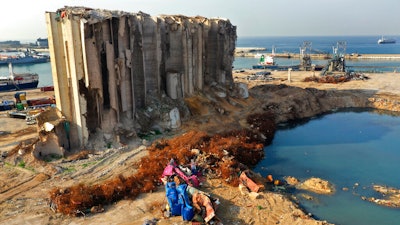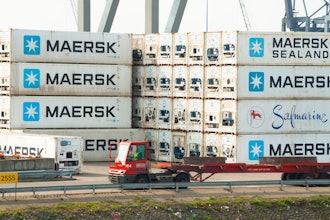
BEIRUT (AP) — A Russian business delegation met Lebanese officials on Monday to discuss plans to rebuild the grain silos destroyed last year in a massive explosion at Beirut’s port, a Lebanese Cabinet minister said.
The visit by the Russian team — including officials from Russia’s Hydro Engineering and Construction company — comes as Lebanon is going though the worst economic and financial crisis in its modern history.
Nearly 3,000 tons of ammonium nitrate — a highly explosive material used in fertilizers — had been improperly stored in the port for years. The nitrate ignited on Aug. 4, causing a catastrophic blast that killed 211 people and injured more than 6,000, devastating nearby neighborhoods.
A government-commissioned study in the wake of the explosion said the 50-year-old silos could collapse at any moment and should be demolished. Several countries are said to be interested in rebuilding the port and the surrounding areas, including Turkey, Germany and China.
Lebanon's Caretaker Public Works and Transpiration Minister Michel Najjar told reporters after meeting with the Russians that they expressed a desire to cooperate and would offer technical support for the silos repair at the port of Beirut. Najjar said the Russians were also interested in building a silos in the port of the northern city of Tripoli.
The Russian team will spend three days at each facility “and they will study the possibility of building new grain silos,” he said.
In April, representatives of several German companies outlined a multi-billion-dollar plan to rebuild the port of Beirut and surrounding neighborhoods. Germany’s consortium, led by Hamburg Port Consulting and Colliers, was the first to visit Lebanon with a plan in hand that they presented to Lebanese officials.
In 2019, Lebanon signed a deal with Russia’s largest oil company, Rosneft, to upgrade and operate storage installations in Tripoli. The deal made Rosneft manage storage operations.






















